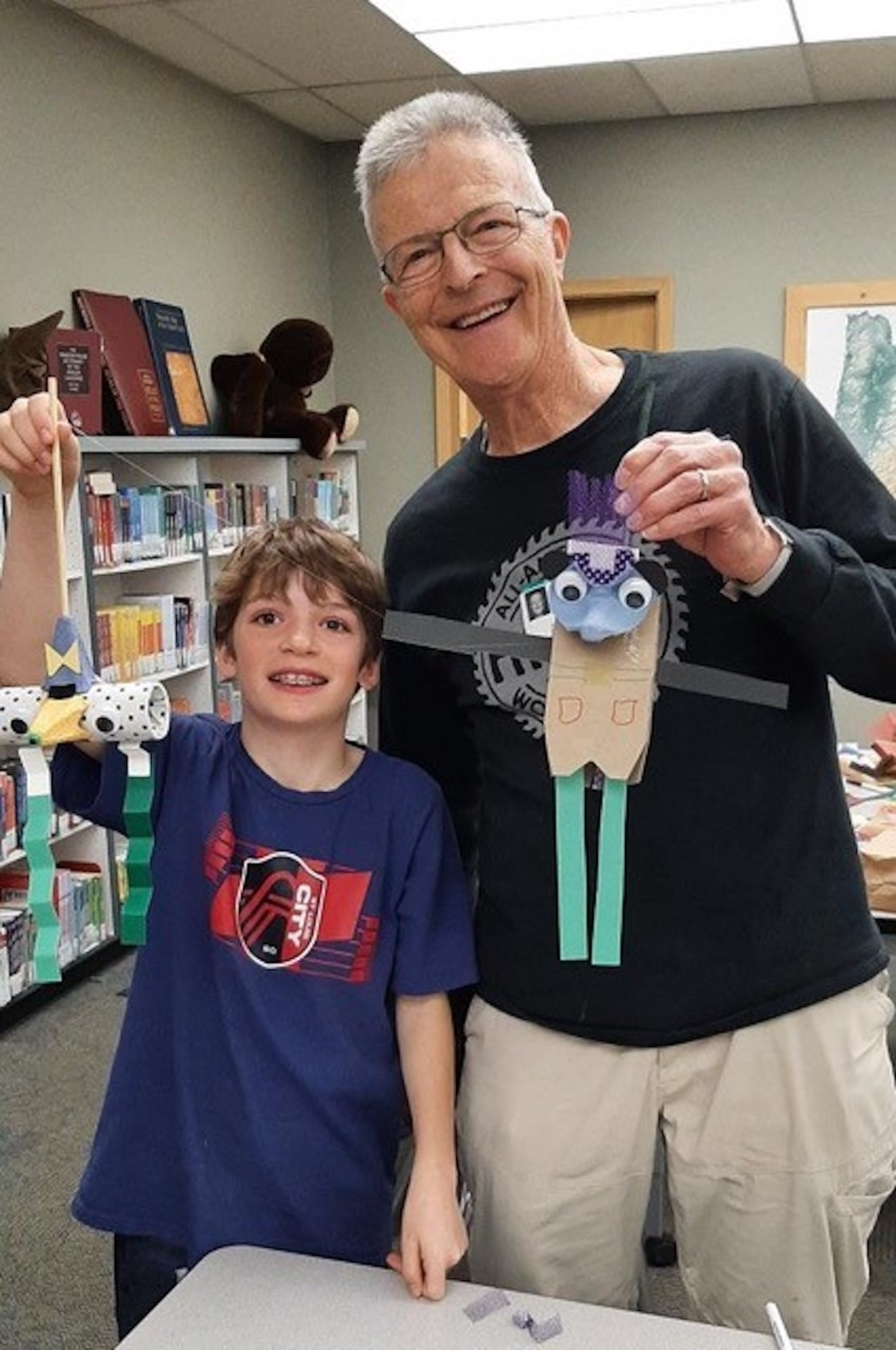He’s giving forward as the lead volunteer for the Diamondbacks Tutors, an English and math tutoring program at High Desert Middle School, which is part of the Bend-La Pine School District.
Alan says he is someone who just likes to give back and quotes the wisdom of Winston Churchill:
“We make a living by what we earn. We make a life by what we give.”
“I’ve been blessed with my medicine practice for a number of years, and I told myself that when I retire, I’m going to turn around and give it back, give forward,” he says.

Alan, who was born in Portland and has spent most of his career as a family medicine specialist practicing in Bend, is now dedicating his time to giving back to his community.
Alan volunteered in a number of different arenas but really enjoyed working with youth and getting to know them. “The kids have unique personalities, but they also have kid personalities in general,” he says. “Learning to work with them on their level is a challenge, and it’s really fun.”
Giving Forward as a Diamondback Tutor
Last year when Alan finished the math program as the sole volunteer tutor, the classroom gave him a standing ovation. This surprised him, because when he first started volunteering, there were a few kids who just weren’t interested. But, he has learned a few techniques along the way that help him engage and get their attention.
“Come and shadow me for one or two visits and just see how to talk with the child,” Alan encourages any reluctant potential volunteers. “And then if you feel like you can do that, I’ll sign you up. There’s no commitment.”
The Diamondbacks Tutors program, now in its third year, has shown remarkable success. In 2023, there were 10 volunteer tutors and 17 participating students. Based on teacher feedback, all participating students improved in at least one key academic area — reading, speaking, confidence in academic skills, connection to school — and several improved in multiple areas.
In addition to supporting other volunteers, Alan tutors a few hours a week with students and has a knack for finding creative ways to engage even the most reluctant learners. “There was a table with four girls in a math class, not really paying attention,” Alan recounts. “I said, ‘Hey, you want to work on the math problems?’ They kind of looked at me like, ‘Well, not really.’ So I said, ‘Do any of you girls know how to take your pulse? I’m a retired doctor.'” This got their attention, and after watching their eyes widen from taking their pulses, Alan transitioned into the math lesson. “They got some entertainment, and they also got some education,” he says.
Alan’s approach is not just about academic improvement; it’s about connecting with students on a personal level. He especially enjoyed getting to know a recent young immigrant: “We just had the best time talking about her country that she grew up in before she came here, talking about how her family got here,” he says.
For Alan, education is as crucial as any other infrastructure in the country. “I think education is on the same level as infrastructure in this country, whether it be sewage, water, electricity, or power,” he asserts. “Education is as important as infrastructure, and we don’t treat it that way politically or socially.”
This passion for education drives Alan to continually improve the program. “These are kids who are going to be leading our country, that are going to be joining the workforce. They’re going to be joining society, and we want them to be as well educated and well versed and as well critically thinking as possible,” Alan says.
Volunteering, especially when working with kids, is similar to the philosophy that makes people want to plant trees, knowing that future generations will enjoy the shade. “It’s a feeling of trying to establish something, to build up an upcoming generation so they have better abilities, better ways of becoming successful. That’s where I feel important,” Alan says.
Alan’s Tips For Volunteering With Kids
1. Break the ice with something interesting you can show them. Alan is a retired physician so he asks kids if they know how to take their pulse.
2. Ask the kids to help you understand the problems. Alan says if he sees a child who is not particularly interested in doing anything he asks them to explain it to him, “because I’m not sure I understand it as fully as I should,” he says. “Well, they may not necessarily be able to help me, but by just getting their attention and starting to look at the problem, I can kind of work my way into sharing what I know about the problem and help energize them to work it through.”
For those inspired by Alan’s story and looking to make a difference in their own communities, SAGE offers numerous opportunities to get involved in education and other vital areas of social improvement.
If you would like to learn more, contact SAGE.
